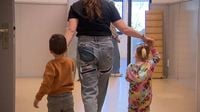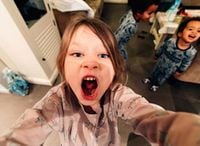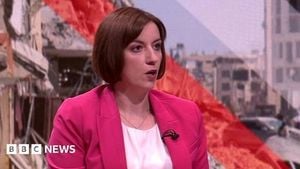In a groundbreaking move aimed at protecting the hearing of its employees, Babilou, one of the largest childcare organizations in the Netherlands, will provide hearing protection to staff members who work with children. This initiative comes in response to growing concerns about the risk of hearing damage due to prolonged exposure to loud noises in childcare environments.
Beginning in late April 2025, Babilou will launch a pilot program at three different locations to test various measures, including the use of hearing protection. Remko Berkel, the director of Babilou Family Nederland, has been increasingly attentive to the worries expressed by his employees regarding their hearing health. "Children can produce a lot of noise. Therefore, we have discussed how to address the concerns of our staff," Berkel stated, as reported by RTL Nieuws.
Currently, pedagogical staff at Babilou are often exposed to crying babies and screaming toddlers for more than eight hours a day. The noise levels in these situations can reach around 80 decibels, which is comparable to the sound of a vacuum cleaner (70 decibels) or a hairdryer (83 decibels). Such levels are concerning enough to warrant immediate action, as KNO doctors emphasize that exposure to sounds above 65 decibels can pose a risk to hearing.
During the pilot, Babilou will implement three distinct strategies across the locations. At one site, wall panels will be installed to enhance acoustics, aiming to mitigate the overall sound levels. Another location will reorganize children's activities to alternate between play and rest periods, allowing children to spend time outdoors, which can help reduce noise levels indoors. The third site will focus on testing different types of hearing protection for staff.
Berkel reassured that this initiative is no April Fool's joke. "We want to map everything out, including which type of hearing protection is suitable. What feels comfortable, and what sound is effectively filtered out? It's crucial that staff can still hear when a child is crying, but their hearing health is equally important," he explained.
Support for this initiative comes from BK, the industry association for childcare, which believes other childcare organizations could benefit from similar measures. A spokesperson noted that not all childcare locations are equally noisy, as noise levels can depend on the condition of the building and the size of the child group.
However, not everyone is on board with the idea of earplugs. Gjalt Jellesma, the chairman and spokesperson for BOinK, an association representing parents in the childcare sector, expressed his opposition to the use of earplugs, stating, "We are fundamentally against earplugs because there are children who speak softly, and you would completely miss them." He advocates for creating acoustically sound environments for both staff and children, suggesting that if a childcare location is lacking in this regard, it should be addressed through improvements such as wall panels or curtains.
Despite the mixed opinions on earplugs, KNO doctor Veronique van den Heuvel supports Babilou's decision. She pointed out that the safe limit for sound exposure is 80 decibels for a maximum of eight hours a day. "If you are consistently above that level, you risk hearing damage. Hearing protection in childcare should be normalized," she asserted. Van den Heuvel further noted that damage to hearing is irreversible, emphasizing the importance of protecting staff's ears, especially in scenarios where they may be holding a baby who suddenly starts crying.
In summary, Babilou's initiative to provide hearing protection to its employees marks a significant step in prioritizing the health and safety of childcare workers. As the pilot program unfolds, it could pave the way for broader changes in childcare practices across the Netherlands, ensuring that the well-being of both children and staff is taken into account.





